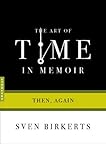"...So many lies have been written about us, the mountain people, that folks from other states have formed an image of a gun-totin', tabaccer -spittin , whiskey drinkin', barefooted, foolish hillbilly who never existed except in the minds of people who have written such things as The Beverly Hillbillies...No matter what we do, we can't make folks believe we are any different...we have been disgraced in the e yes of the outside world." from What My Heart Wants To Tell by Verna Mae Slone, Lexington, Kentucky 1978.
When I moved to Kentucky and discovered how beautiful and interesting it was, I wanted to know all about it. I was fascinated by the history, especially that of the folks in Appalachia. I must admit that I am one of the people who had a stereotypical impression of that area. Being extremely curious and an avid reader, I started reading a lot about it and came across the quote at the beginning of this chapter. I was so struck by the pathos of it that I had to know more about the people.
I had the good fortune to have a couple of professors from the University of Kentucky come to stay with me, Elizabeth and Charlie. They both were sociologists and Charlie was an expert on Appalachia and would talk to me for hours about the area and the people. He completely changed the impression I, like so many others outside the area, had.
I learned that the Appalachian Mountains stretch from Belle Isle in Canada to Cheaha Mountain in the U.S. state of Alabama. And that the cultural region of Appalachia typically refers only to the central and southern portions of the range. I was surprised to find out that in 2005 approximately 23 million people lived there. Along with Scotch-Irish immigrants, there were German and English settlers in western Pennsylvania, Northwestern Virginia, and Western Maryland.
Charlie and I spent hours talking about the discovery of the Cumberland Gap in 1750 and the end of the French and Indian War in 1763 and how after that settlers moved deeper into the mountains of upper Eastern Tennessee, Northwestern North Carolina, Upstate South Carolina, and Central Kentucky. He told me about the treaties with the Cherokee and other tribes that opened up lands in North Georgia, Northeast Alabama, the Tennessee Valley, the Cumberland Plateau regions, and the highlands along what is now the Tennessee-North Carolina border.
I had always pictured an Appalachian hunter or pioneer wearing a coonskin cap and buckskin clothing, and carrying a long rifle and shoulder-strapped powder horn like Daniel Boone, living on high mountain ridges and fending for themselves against the elements and attacks from the Indians. Charlie said this was pretty much accurate.
*This piece is the first in a series of excerpts from a longer article I wrote some time ago. If you found this one interesting, you might enjoy returning to read the next three. I will publish one every Friday while I am part of the blogging challenge. Thanks, Nancy
If you enjoyed this post, please consider leaving a comment





































